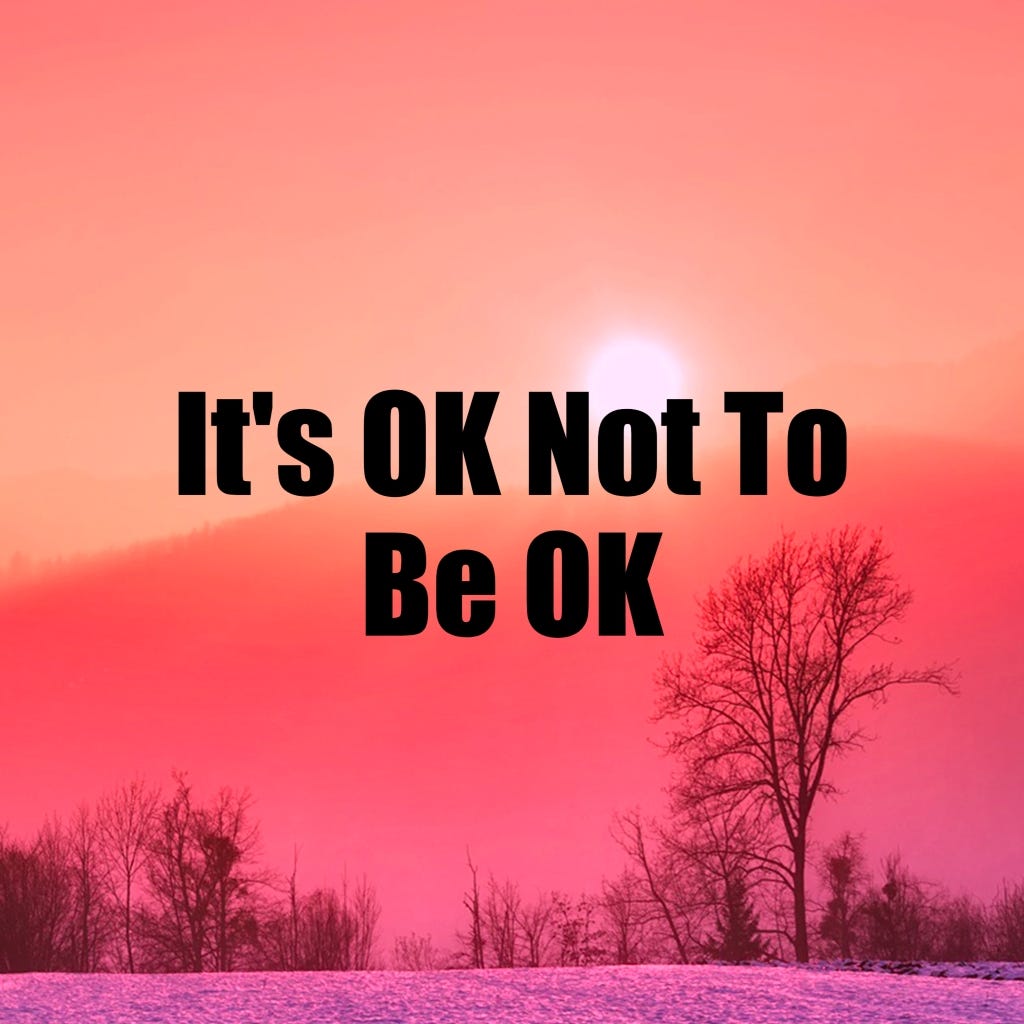Day 1: Illusions of Perfection
#RethinkChurch is starting a 22-day journey for self-reflection based on John Wesley’s 22 questions. I will be trying to compose short blog posts addressing each question. I’ll try to do it every day, but no promises. The new semester just started.
Day 1: Am I consciously or unconsciously creating the impression that I am better than I really am?
I hate the question, “Are you OK?” I never know how to answer it. I am not always good at navigating societal expectations but I know that one societal ritual that we are all expected to participate in is to ask a person how they are doing and for them to respond that they are doing fine, or if things are difficult they may make vague illusions to their troubles but they are expected to quickly add, “but this too shall pass!” Going into a long diatribe about one’s struggles is often not welcomed and is often inappropriate.
The pressure to appear upbeat and cheerful is amplified on social media. I am not bashing social media. I love it. I grew up on social media, progressing from Livejournal to Myspace, to Facebook, to the myriad of other social media sites now at our fingertips. Social media provides a great way to network with people that you would otherwise never have the opportunity to interact with. And of course, social media is a useful resource to keep in touch with friends and families throughout the globe. It also exposes us to information at lightning speeds, which can be both a good and a bad thing.
But social media, especially the rise of influencer culture combined with societal expectations that we present ourselves as always happy and “well put together” means that we are often pressured to mask our struggles and insecurities. Of course, there is a time and place for everything. I can’t just blurt out all my life’s troubles to the Kroger’s cashier. But many times, this expectation that we project perfection goes beyond picking and choosing when and where to discuss our struggles. Instead, we are often expected to hide our challenges and troubles, all the time, even from our closest friends and family.
For those of us who struggle with mental illness, we face the added pressure of not wanting to burden our loved ones who are often going through their own challenges. So, the mask that we wear in public so that we don’t inappropriately vent to a stranger, becomes a permanent fixture. We hide our true feelings, we pretend that everything is ok, we hide that we are stressed, overburdened, and isolated, we stuff down our pain. Unfortunately, the pain that we hide, never really goes away and it will eventually manifest itself, often times in unhealthy and inconvenient times and places.
And it is humbling and humiliating when the masks falls down, especially after trying so hard to keep it together. But sometimes letting the mask fall can be freeing. Sometimes we need to be honest with ourselves, with each other and with God, that we are struggling to get up in the morning. We need to share that we have a hard time finding meaning in our lives and that we are tired.
I started this blog and writing more consistently about theology during a very difficult time in my life where my struggles with depression and the pressures of life became overwhelming. While I’m no longer in a crisis, the reality is that things are still hard. Plans and dreams that I had fell apart. While my future plans were always uncertain, I at least knew what I was going to do for the next 3 or 4 years of my life. But now that small measure of certainty is gone. And I’m scared. I know that eventually I will be alright. I know that God is journeying with me through this. But the truth is, that right now, life is hard. And it’s ok to admit that.



